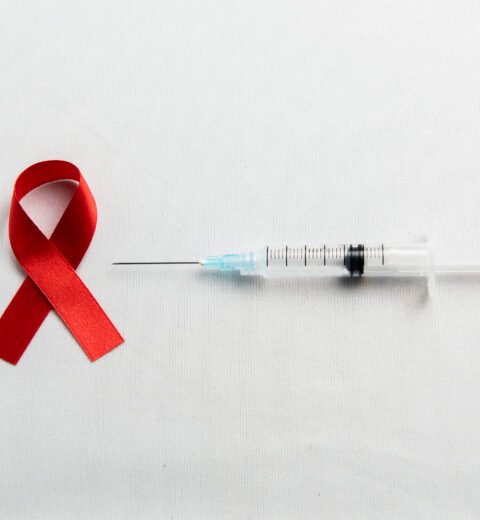Heart attack, medically known as myocardial infarction, is a serious health condition that occurs when the blood supply to the heart is blocked or reduced. This blockage is often due to a buildup of fat, cholesterol, and other substances in the coronary arteries, a condition known as coronary artery disease (CAD).
In the UK, particularly for Nigerians who have migrated from Nigeria, understanding heart attacks is essential, as cardiovascular diseases (CVDs), including heart attacks, are a growing concern due to lifestyle changes, stress, and, sometimes, a lack of awareness about heart health. This article explores the causes, symptoms, prevention methods, and actionable tips for Nigerians living in the UK, including heart-healthy practices adapted from both Western and Nigerian dietary habits.
What is a Heart Attack?
A heart attack occurs when the heart muscle is deprived of oxygen due to a blocked coronary artery. If not treated promptly, the affected part of the heart muscle can be permanently damaged, leading to complications such as heart failure or even death.
In the UK, heart attacks are part of a group of conditions known as acute coronary syndromes, which require immediate medical attention. Early intervention can significantly improve survival rates and outcomes.
Causes of Heart Attacks
The primary causes of heart attacks include:
- Coronary Artery Disease (CAD): The most common cause, where plaque buildup restricts blood flow to the heart.
- High Blood Pressure (Hypertension): Damages arteries, raising the risk of heart attack.
- High Cholesterol Levels: LDL (bad cholesterol) can cause plaque formation in arteries.
- Diabetes: Increases the risk of plaque buildup due to blood vessel damage.
- Smoking and Alcohol Consumption: Smoking damages blood vessels, while alcohol can raise blood pressure and cause arrhythmias.
- Stress and Sedentary Lifestyle: Chronic stress and physical inactivity, which are common in both Nigerian and UK communities, contribute significantly to heart disease risk.
- Family History: A family history of heart disease increases susceptibility to heart attacks.
Symptoms of a Heart Attack
Recognizing the symptoms is crucial:
- Chest pain or discomfort (often described as pressure, squeezing, or fullness).
- Pain radiating to the arms, neck, back, jaw, or stomach.
- Shortness of breath, cold sweats, nausea, or lightheadedness.
- Fatigue or weakness, especially in women.
If you or someone around you experiences these symptoms, seek medical help immediately. Early treatment can save lives.
Awareness of Heart Attacks in the Nigerian Community in the UK
Heart disease is becoming increasingly common in Nigeria due to urbanization, poor dietary habits, and limited access to healthcare. Many Nigerians in the UK face similar risk factors, including dietary changes and a lack of physical activity due to busy work schedules.
Nigerian Statistics:
- According to the World Health Organization (WHO), cardiovascular diseases account for over 24% of deaths in Nigeria.
- Hypertension affects over 30% of Nigerian adults, making it a significant risk factor for heart attacks.
How to Prevent Heart Attacks
Prevention involves a combination of lifestyle changes and regular health checks. Here are some actionable tips:
- Maintain a Healthy Diet:
- Focus on a diet rich in fruits, vegetables, whole grains, and lean proteins.
- Limit intake of saturated fats and cholesterol from foods like red meat and fried foods.
- Reduce sodium intake to manage blood pressure.
- Avoid sugary beverages; opt for water or herbal teas.
- Engage in Regular Physical Activity:
- Aim for at least 150 minutes of moderate-intensity aerobic exercise each week, such as brisk walking or cycling.
- Incorporate strength training to boost overall heart health.
- Avoid Smoking and Limit Alcohol:
- Smoking significantly raises heart attack risk.
- Limit alcohol intake to one drink per day for women and two for men.
- Manage Stress:
- Practice stress-relief techniques like deep breathing, meditation, or yoga.
- Maintain a healthy work-life balance.
- Regular Health Check-ups:
- Monitor your blood pressure, cholesterol levels, and blood sugar.
- Early detection of health issues like hypertension can prevent complications.
- Follow Prescribed Medications:
- If you have conditions like hypertension or high cholesterol, take your medications as prescribed.
Heart-Healthy Nigerian Foods
Incorporating locally available heart-friendly foods into your diet can help. Consider the following:
- Leafy Greens: Ugu (fluted pumpkin leaves), spinach, and bitter leaf are rich in potassium, which regulates blood pressure.
- Whole Grains: Ofada rice, millet, and sorghum are high in fiber and can help lower cholesterol.
- Fish: Catfish, mackerel, and tilapia are rich in omega-3 fatty acids, promoting heart health.
- Nuts and Seeds: Groundnuts, cashews, and sesame seeds are heart-healthy in moderation.
- Fruits: Pawpaw, oranges, and bananas are packed with antioxidants and potassium.
When to Seek Medical Help
If you experience any of the following, seek immediate medical attention:
- Persistent or severe chest pain.
- Shortness of breath that worsens.
- Dizziness, fainting, or rapid irregular heartbeat.
Living with Heart Disease
Managing heart disease involves adhering to medical advice, maintaining a heart-healthy lifestyle, and staying informed about heart health.
- Adhere to medical advice and take prescribed medications.
- Join support groups for emotional and social support.
- Educate yourself about heart health and share this knowledge with others.
- Engage family and friends to support you in making lifestyle changes.
Final Thoughts
Heart attacks are preventable with the right knowledge and proactive measures. Nigerians in the UK must prioritize heart health through a healthy lifestyle, regular check-ups, and early intervention. By understanding the risks and prevention strategies, we can reduce the prevalence of heart disease and improve overall well-being.
Share this article with friends and family to spread awareness and foster a healthier Nigerian community in the UK.
For more information on heart health and resources in the UK, visit NHS Heart Attack Resources.
Join Our WhatsApp Channel
Stay updated on the latest UK news, including education, health, job openings, and more for those living in the UK!
Join here: Naija UK Channel
Also, follow us on our social media channels for the latest updates and discussions:
- Twitter: @NaijaUKConnect
- Facebook: Naija UK Connect
- Instagram: @naijaukconnect




